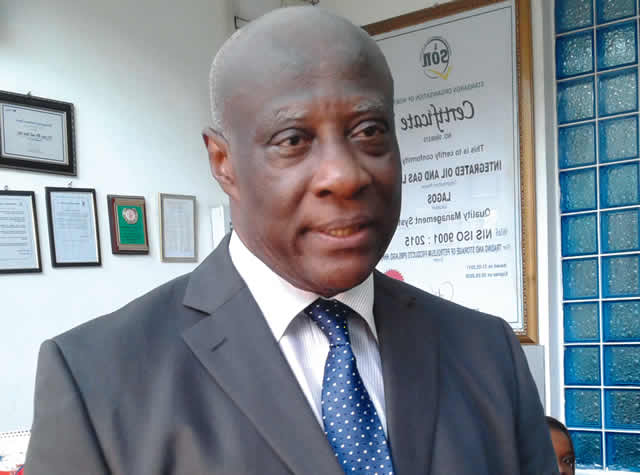
Capt. Emmanuel Iheanacho, Chairman of Integrated Oil and Gas Ltd., emphasises the indispensable role of depot owners in Nigeria’s fuel supply chain, particularly in the context of the recent delivery of Dangote Premium Motor Spirit (PMS).
Iheanacho, made the clarification in a reaction to a statement made by the billionaire and Chairman of FBN Holdings, Mr Femi Otedola.
Otedola had suggested that Nigerian depot owners should dismantle their facilities and sell them as scrap, given the arrival of Dangote’s PMS.
Iheanacho, who is also a member of the Depot and Petroleum Products Marketers Association of Nigeria (DAPPMAN), clarified that petroleum products storage depots were a vital component of the fuel supply chain, complementing primary fuel sources.
He stressed that without these depots, other elements in the supply chain would struggle to deliver fuel to consumers.
“While there might be competitive elements in the market, collaboration and cooperation are essential for ensuring a stable fuel supply in Nigeria.
“Petroleum depots are not a replacement for primary fuel sources but are crucial for storing and distributing products to meet demand,” Iheanacho said.
He added that depots play an important role in distribution, particularly given Nigeria’s dispersed infrastructure.
Accorsing to Iheanacho, while private depots may compete with the Nigerian National Petroleum Corporation Ltd. (NNPC) in terms of storage and distribution, they are not necessarily in direct competition with the NNPC or the Dangote Refinery.
“Instead, these depots often work in conjunction with both to support a reliable fuel supply chain.
“Private depots may compete with petroleum importers for market share by offering essential storage and distribution services.
“Ultimately, competition aims to balance market prices.
“However, depots are key partners in supporting the entire supply chain, including NNPC and Dangote,” he added.
Iheanacho concluded that depots provide critical storage and distribution support not only for NNPC and Dangote but also for petroleum importers, ensuring a more efficient and reliable fuel supply network.















